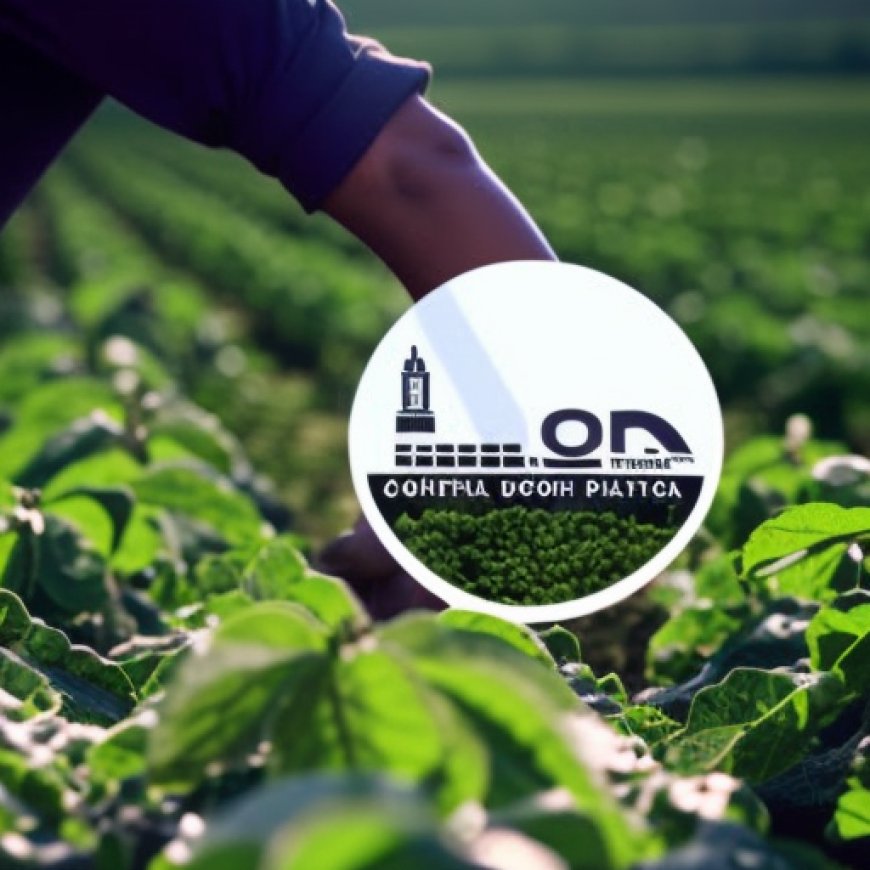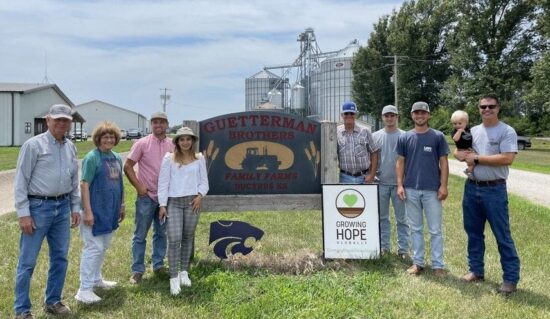Growing Hope Globally Aims to Support Agricultural Development in Developing Countries | KCLY Radio


Manhattan Resident Joins Growing Hope Globally to Fight Hunger

By: Ryan Duey
Kaylyn Morse, a resident of Manhattan, has recently become involved with Growing Hope Globally, a Christian nonprofit organization that focuses on addressing and supporting agricultural development in developing countries. Inspired by the cause and the positive impact it has both locally and overseas in fighting hunger, Morse decided to join the organization to make a broader impact.
Supporting Sustainable Development Goals
Growing Hope Globally utilizes the proceeds from crops grown in the United States to fund programs overseas through their Growing Projects. These projects aim to provide training and tools to developing communities, helping them become more sustainable. Currently, the organization works with 31 different countries and supports 45 agricultural development programs, contributing to the achievement of the Sustainable Development Goals (SDGs).
Local and Global Impact
Morse actively participates in Growing Projects in her local area as well as collaborates with partners overseas. By engaging in these initiatives, she contributes to the organization’s mission of fighting hunger and promoting sustainable agricultural practices.
Getting Involved
If you are interested in learning more about Growing Hope Globally or getting involved with their programs, you can visit their website at https://www.growinghopeglobally.org. Additionally, Morse welcomes direct inquiries and can be contacted through her information available at https://www.growinghopeglobally.org/about-us/staff/.
SDGs, Targets, and Indicators
-
SDGs addressed or connected to the issues highlighted in the article:
- SDG 2: Zero Hunger
- SDG 1: No Poverty
- SDG 8: Decent Work and Economic Growth
- SDG 17: Partnerships for the Goals
-
Specific targets under those SDGs based on the article’s content:
- SDG 2.3: By 2030, double the agricultural productivity and incomes of small-scale food producers, in particular women, indigenous peoples, family farmers, pastoralists, and fishers, including through secure and equal access to land, other productive resources and inputs, knowledge, financial services, markets, and opportunities for value addition and non-farm employment.
- SDG 1.4: By 2030, ensure that all men and women, in particular, the poor and the vulnerable, have equal rights to economic resources, as well as access to basic services, ownership, and control over land and other forms of property, inheritance, natural resources, appropriate new technology, and financial services, including microfinance.
- SDG 8.3: Promote development-oriented policies that support productive activities, decent job creation, entrepreneurship, creativity, and innovation, and encourage the formalization and growth of micro-, small- and medium-sized enterprises, including through access to financial services.
- SDG 17.6: Enhance North-South, South-South, and triangular regional and international cooperation on and access to science, technology, and innovation and enhance knowledge sharing on mutually agreed terms, including through improved coordination among existing mechanisms, in particular, at the United Nations level, and through a global technology facilitation mechanism.
-
Indicators mentioned or implied in the article:
- Income levels of small-scale food producers
- Access to land, productive resources, and inputs
- Access to knowledge and financial services
- Number of agricultural development programs supported
- Number of countries supported
- Partnerships with organizations and individuals
SDGs, Targets, and Indicators
| SDGs | Targets | Indicators |
|---|---|---|
| SDG 2: Zero Hunger | SDG 2.3: By 2030, double the agricultural productivity and incomes of small-scale food producers, in particular women, indigenous peoples, family farmers, pastoralists, and fishers, including through secure and equal access to land, other productive resources and inputs, knowledge, financial services, markets, and opportunities for value addition and non-farm employment. |
|
| SDG 1: No Poverty | SDG 1.4: By 2030, ensure that all men and women, in particular, the poor and the vulnerable, have equal rights to economic resources, as well as access to basic services, ownership, and control over land and other forms of property, inheritance, natural resources, appropriate new technology, and financial services, including microfinance. |
|
| SDG 8: Decent Work and Economic Growth | SDG 8.3: Promote development-oriented policies that support productive activities, decent job creation, entrepreneurship, creativity, and innovation, and encourage the formalization and growth of micro-, small- and medium-sized enterprises, including through access to financial services. |
|
| SDG 17: Partnerships for the Goals | SDG 17.6: Enhance North-South, South-South, and triangular regional and international cooperation on and access to science, technology, and innovation and enhance knowledge sharing on mutually agreed terms, including through improved coordination among existing mechanisms, in particular, at the United Nations level, and through a global technology facilitation mechanism. |
|
Source: kclyradio.com








